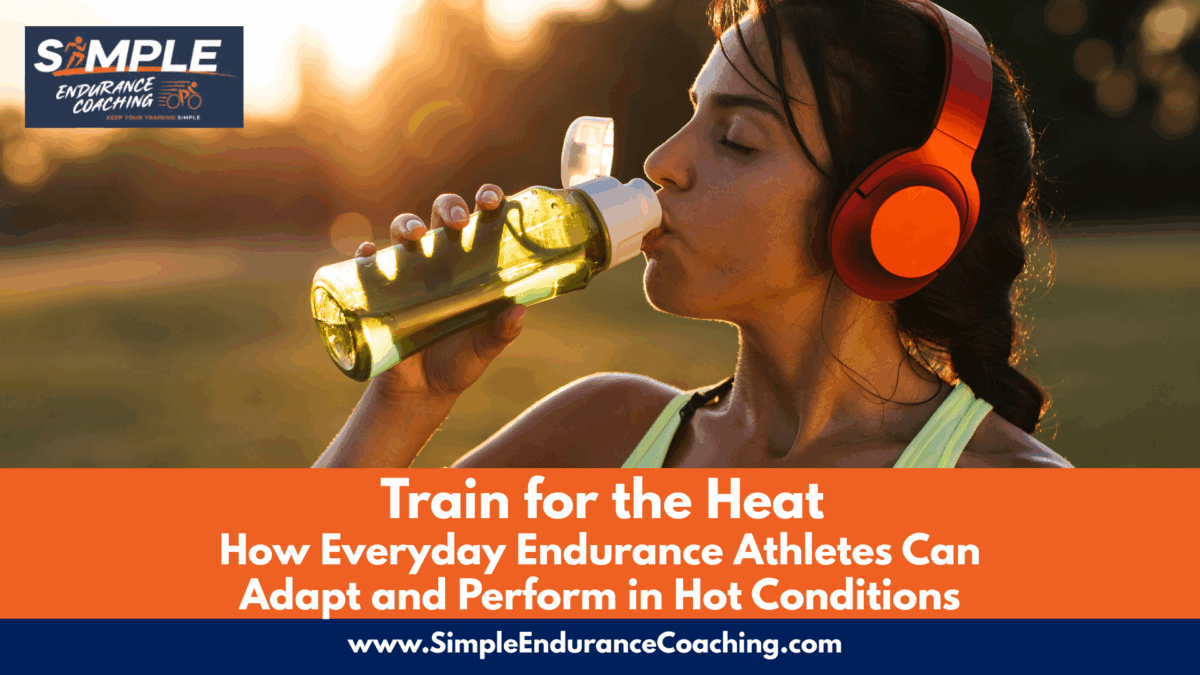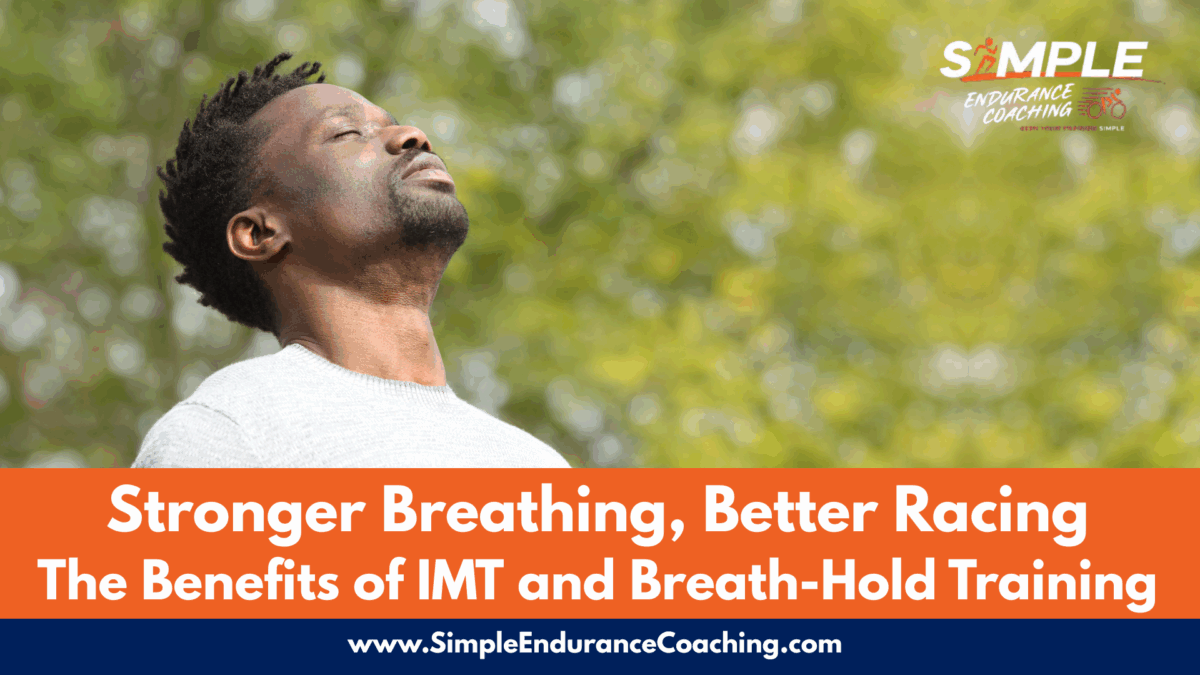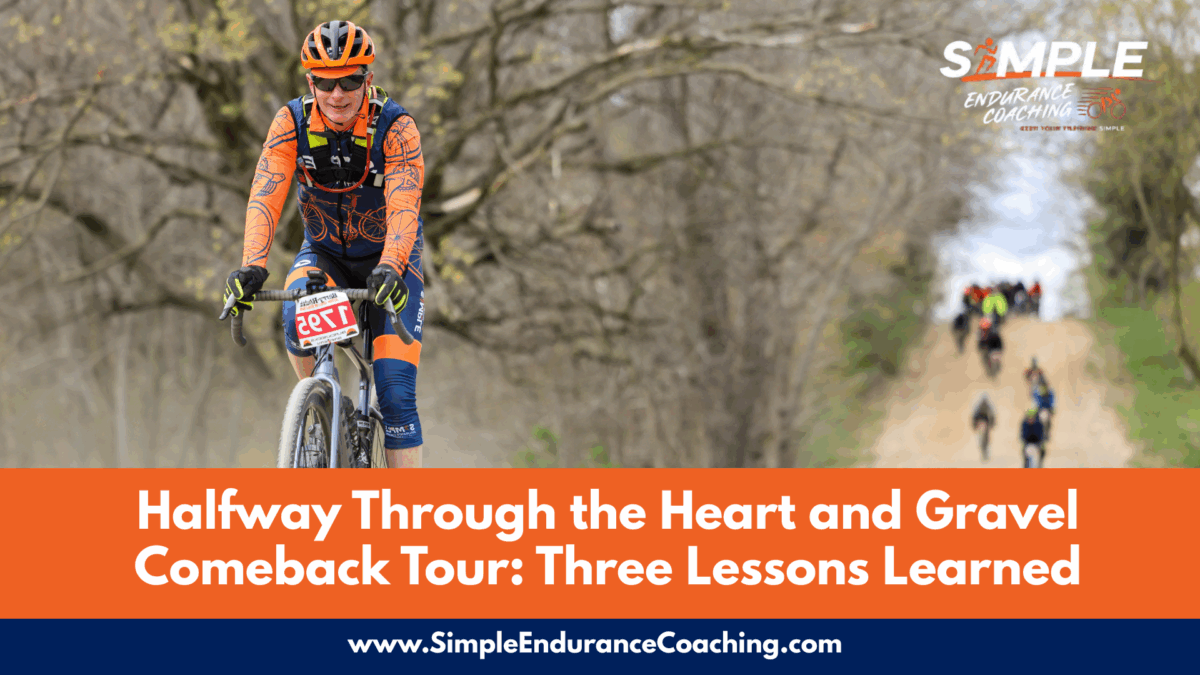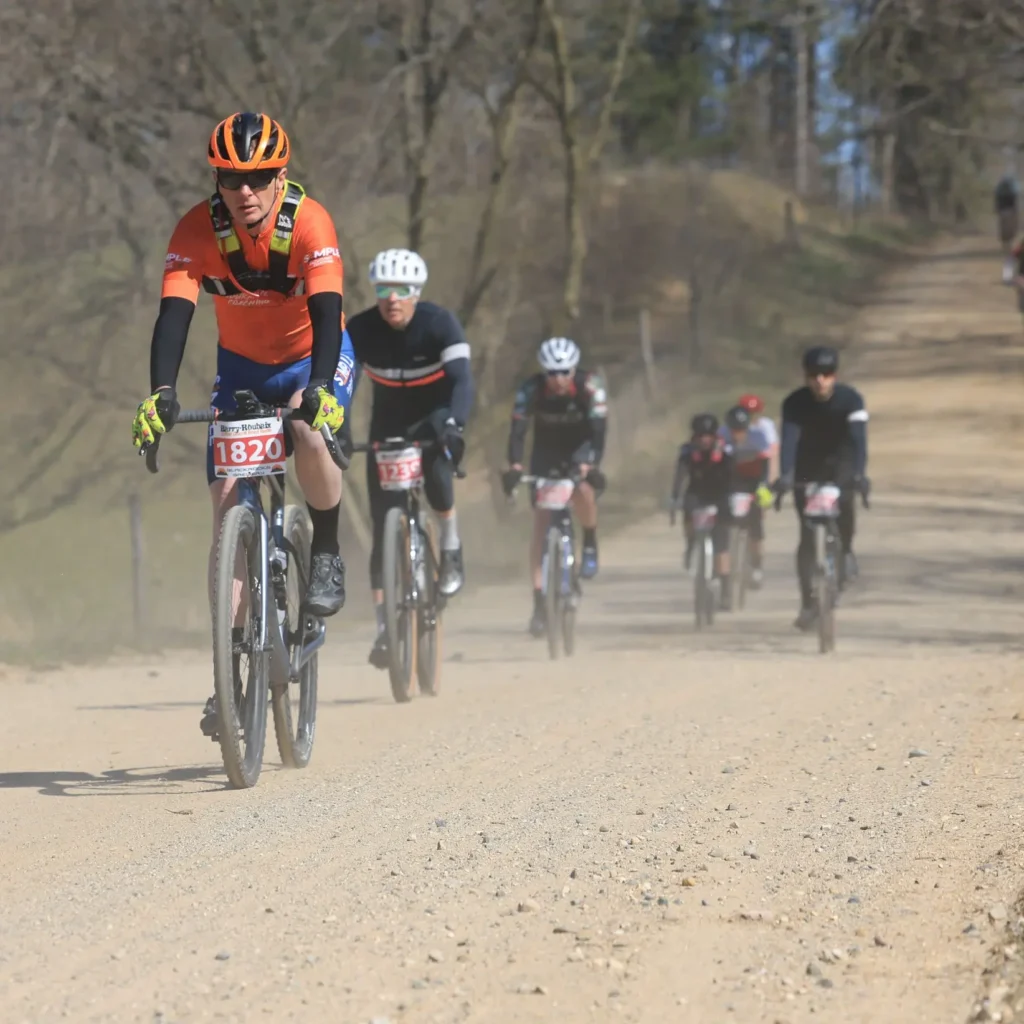What’s On Your Plate: A Balanced Approach to Weight Loss for Everyday Endurance Athletes
I’ve been writing a lot lately about nutrition mostly because my athletes and others have been asking me about it.
And good nutrition has come up in discussions about race performance and being under-fueled.
Essentially our discussions come down to three questions:
Are you eating enough? At the right time? And what does your plate look like?
We will focus on everyday athletes who want to lose some weight for health reasons.
I suggest athletes focus on this idea: On your plate, every meal should have a protein and a vegetable/fruit with a good fat.
This kind of positive approach will help you sustainably lose weight and still maintain your performance.
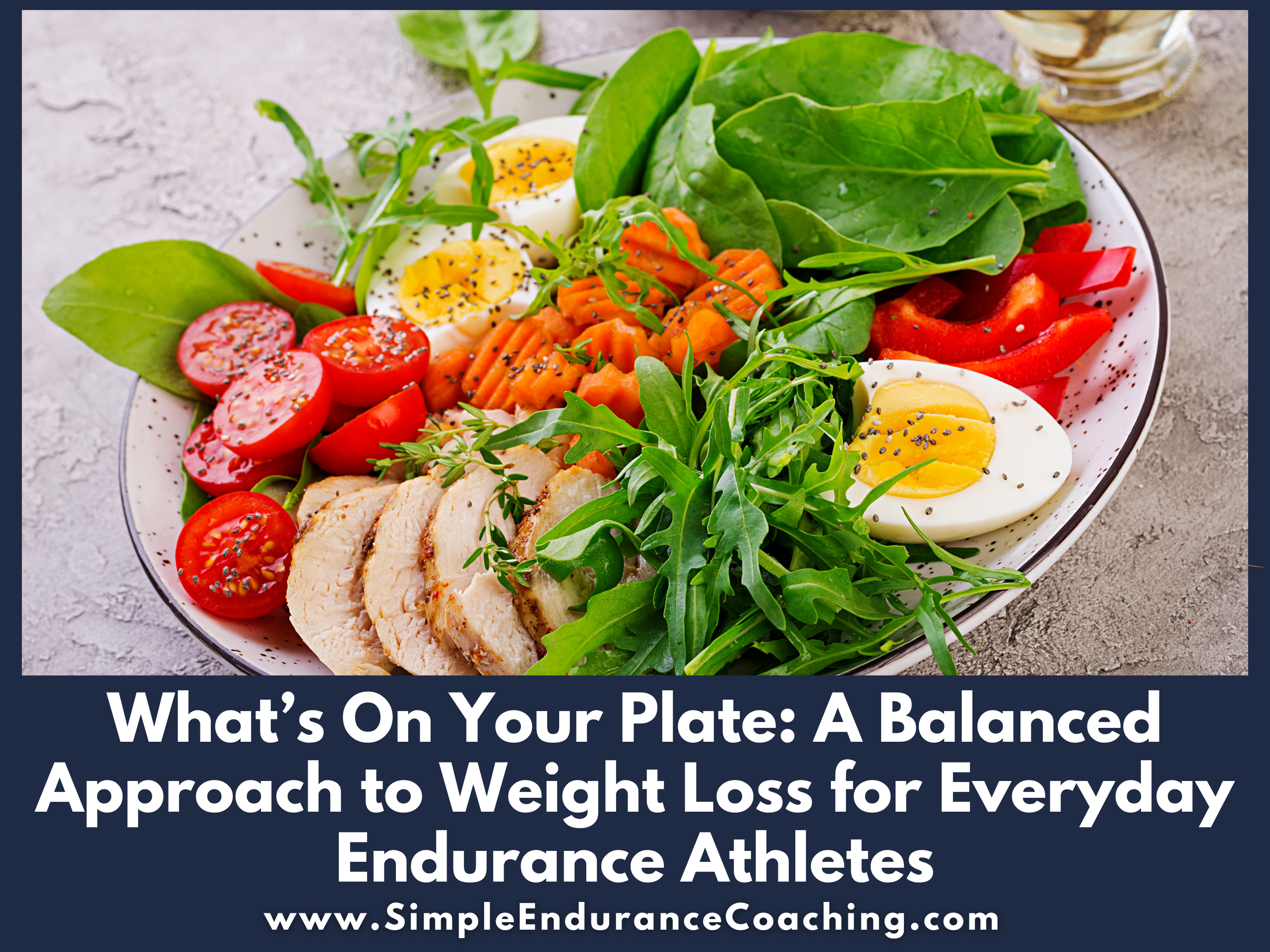
One of the hardest parts of listening to the advice from Dr. Paul Laursen and Marjaana Rakai on our podcast is the fluidity of eating.
There are no macro percentages or calories to count.
Instead:
- Eat when you’re hungry.
- Eat whole foods.
- Eat mostly protein, vegetables and fruits, and good fats.
Carbohydrates are still necessary for higher-intensity workouts.
I eat a bowl of oatmeal with eggs and butter in the morning to provide enough fiber.
Then for intense workouts, really long rides or runs, or races, I’ll still have some carbohydrates to provide the glycogen to support my energy needs.
Carbohydrates can provide fuel before the workout as well as after to replenish glycogen supplies as needed.
Protein
Protein is essential for athletes as it helps in muscle repair and growth, especially after endurance training sessions.
Including a good source of protein in every meal ensures that athletes are adequately fueling their bodies for recovery and performance.
Research suggests that consuming protein-rich foods like lean meats, poultry, fish, eggs, dairy products, legumes, and plant-based protein sources can support muscle health and aid in weight management.
Athletes should be working to get about one gram of protein per pound of body weight.
Vegetables and Fruits
Vegetables and fruits are rich in essential vitamins, minerals, antioxidants, and fiber, all of which are beneficial for overall health and performance.
They provide essential nutrients without adding excessive calories, making them excellent choices for weight management.
Additionally, their high fiber content helps with satiety, keeping athletes feeling fuller for longer periods and potentially reducing overall calorie intake.
Healthy Fats
Including healthy fats in the diet is crucial for athletes as they provide a concentrated source of energy and support various bodily functions.
Sources of healthy fats include avocados, nuts, seeds, olive oil, butter, and fatty fish like salmon.
These fats contribute to satiety, aid in the absorption of fat-soluble vitamins, and provide anti-inflammatory benefits, which can be particularly beneficial for athletes managing training-related inflammation.
I add butter to the vegetables at dinner!
The Green List
Dr. Tim Noakes and his book The Real Meal Revolution provide lists of choices for proteins, vegetables, and good fats.
Here’s an image of the Green List
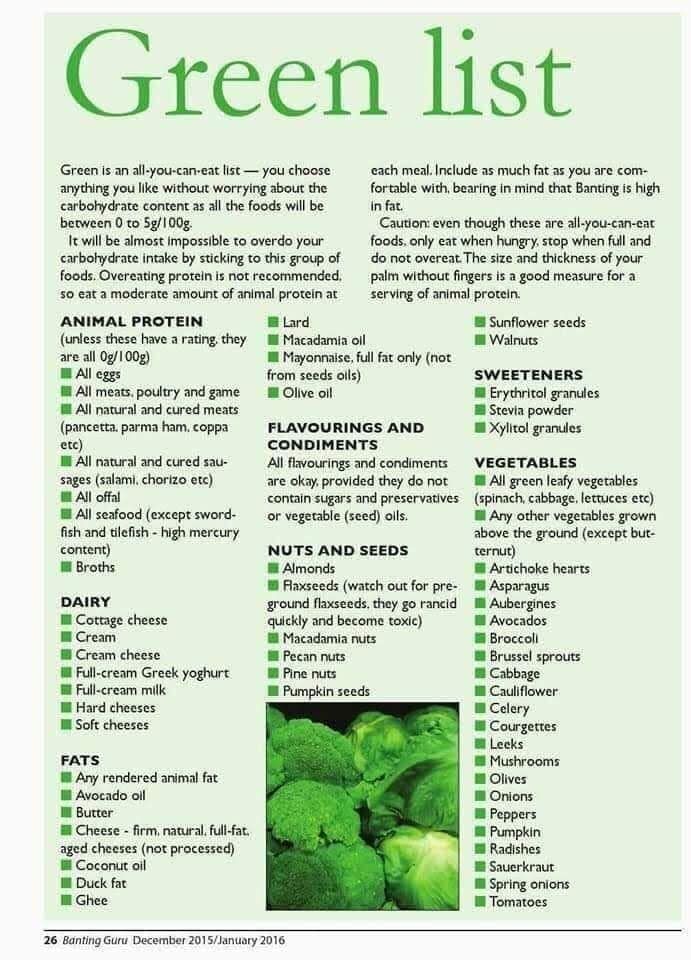
There’s also an Orange, Light Red, and Red lists.
The idea is that you can eat as much as you want from the Green List, some from the orange list, and avoid the others as much as possible.
Focus on what you can have, not the restriction
I find that most diets are highly restrictive, and sure, this, in a way, is also restrictive.
But the idea is to simplify your choices: choose your protein, choose a vegetable or fruit. Focus on a plate that includes a good source of protein, along with vegetables or fruits and healthy fats, athletes can optimize their nutrition for both weight management and performance.
It’s also important to consider portion sizes and overall calorie balance based on individual energy needs and training goals.
Here are some other factors to consider
- Distinguish between true hunger and emotional eating. Eating protein and good fats should help you feel satiated sooner. Listen to that feeling of real hunger versus habitual or nervous eating.
- Hydration: Hydration is crucial for both weight management and athletic performance. It’s important to maintain proper hydration levels throughout the day.
- Mindful Eating: Practicing mindful eating techniques, such as chewing slowly, savoring each bite, and paying attention to hunger and fullness cues, can support their weight loss efforts and overall well-being.
- Meal Planning: Meal preparation can help athletes stay consistent with their nutrition goals. Batch cooking and meal prepping can make it easier for athletes to adhere to a healthy eating plan, especially during busy training periods.
- Balanced Approach to Nutrition: It’s important to enjoy food, and not become rigid in your thinking about nutrition. I still enjoy pizza, for example, and now just have cauliflower crust. Avoiding an overly restrictive mindset and promoting flexibility and enjoyment in eating can contribute to long-term success in weight management and athletic performance.
Three things to know about a positive approach to weight loss
- For every meal, have a protein and a vegetable and/or fruit on your plate.
- Eat when you’re hungry.
- Eat carbohydrates to provide fuel for intense or long workouts.
Need more?
GET A FREE Core Strength and Stability training video when you opt in to receive my weekly blog posts about what works in endurance sports.
SIGN UP FOR A Virtual Coffee so we can discuss your goals, ask questions, and talk about making your endurance training more effective, fun, and Simple.
Paul Warloski is a:
- USA Cycling Level 2 Coach
- RRCA Running Coach
- Training Peaks Level 2 Coach
- RYT-200 Yoga Instructor
- Certified Personal Trainer

